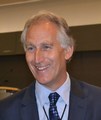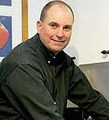“Will there be sufficient fresh water in the Lower Fraser River for agriculture in the future?,” asks Ted van der Gulik, President of the Partnership for Water Sustainability in BC

“Context is everything. BC needs 215,000 hectares of irrigated agriculture to help feed our current population, an increase of 20% over what has access to irrigation today. Another revealing comparison is the amount of irrigated agricultural area within the Metro Vancouver region versus that in the Okanagan Valley: ~13,000 ha versus ~20,000 ha. The Fraser Valley can increase irrigated acreage to 35,000 ha with careful planning, a region where most of the vegetables would come from. From a food security perspective, these comparisons underscore the strategic value of agricultural land in the Fraser Valley,” states Ted van der Gulik.










